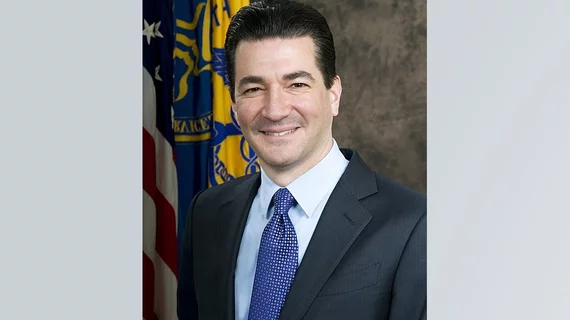FDA developing framework for AI-based medical devices that ‘learn’ in real time
The FDA has announced that it is working toward developing a new regulatory framework for medical devices that use advanced artificial intelligence (AI) algorithms.
“Artificial intelligence has helped transform industries like finance and manufacturing, and I’m confident that these technologies will have a profound and positive impact on health care,” Scott Gottlieb, MD, outgoing FDA commissioner, said in a prepared statement from the agency. “I can envision a world where, one day, artificial intelligence can help detect and treat challenging health problems, for example by recognizing the signs of disease well in advance of what we can do today. These tools can provide more time for intervention, identifying effective therapies and ultimately saving lives.”
The FDA released a discussion paper on the topic, asking for comments to be submitted by June 3. The agency plans to then issue a draft guidance based on feedback received about the contents of that discussion paper.
“Our approach will focus on the continually-evolving nature of these promising technologies,” Gottlieb said. “We plan to apply our current authorities in new ways to keep up with the rapid pace of innovation and ensure the safety of these devices.”
Gottlieb also emphasized that AI technologies cleared by the FDA thus far have been “locked,” meaning they don’t keep learning and adapting each time they are used. Instead, those algorithms are updated at certain intervals by the manufacturers, who are able to take time to train the algorithm and verify that the update was a success. What the FDA is focused on with this new regulatory framework is algorithms that will continually “learn” as they are used, evolving without specific manufacturer-driven updates.
“The goal of the framework is to assure that ongoing algorithm changes follow pre-specified performance objectives and change control plans, use a validation process that ensures improvements to the performance, safety and effectiveness of the artificial intelligence software, and includes real-world monitoring of performance once the device is on the market to ensure safety and effectiveness are maintained,” Gottlieb said. “We’re exploring this approach because we believe that it will enable beneficial and innovative artificial intelligence software to come to market while still ensuring the device’s benefits continue to outweigh it risks.”
Additional information on this new push from the FDA is available on the agency’s website.

